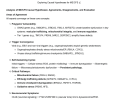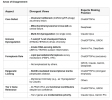Hoopoe
Senior Member (Voting Rights)
It means that the ME genetic signals are not equivalent to any… arthritis, Parkinson’s, Alzheimer’s, depression, anxiety, none of those and more.
I'm wondering if it's possible to use a GWAS to develop better diagnostic criteria for diseases with no objective tests and unspecific symptoms.
One could use GWAS data to compare different diagnostic criteria or combinations of different parameters to see which ones give the most hits above the significance threshold. One could go a step further and compare the profile (a list of the genomic regions of the hits) with that of other diseases which are difficult to separate. Maybe it's possible to find patterns in the data that suggest the disease being studied is actually more than one disease.
Has something like this been attempted?
Last edited:


